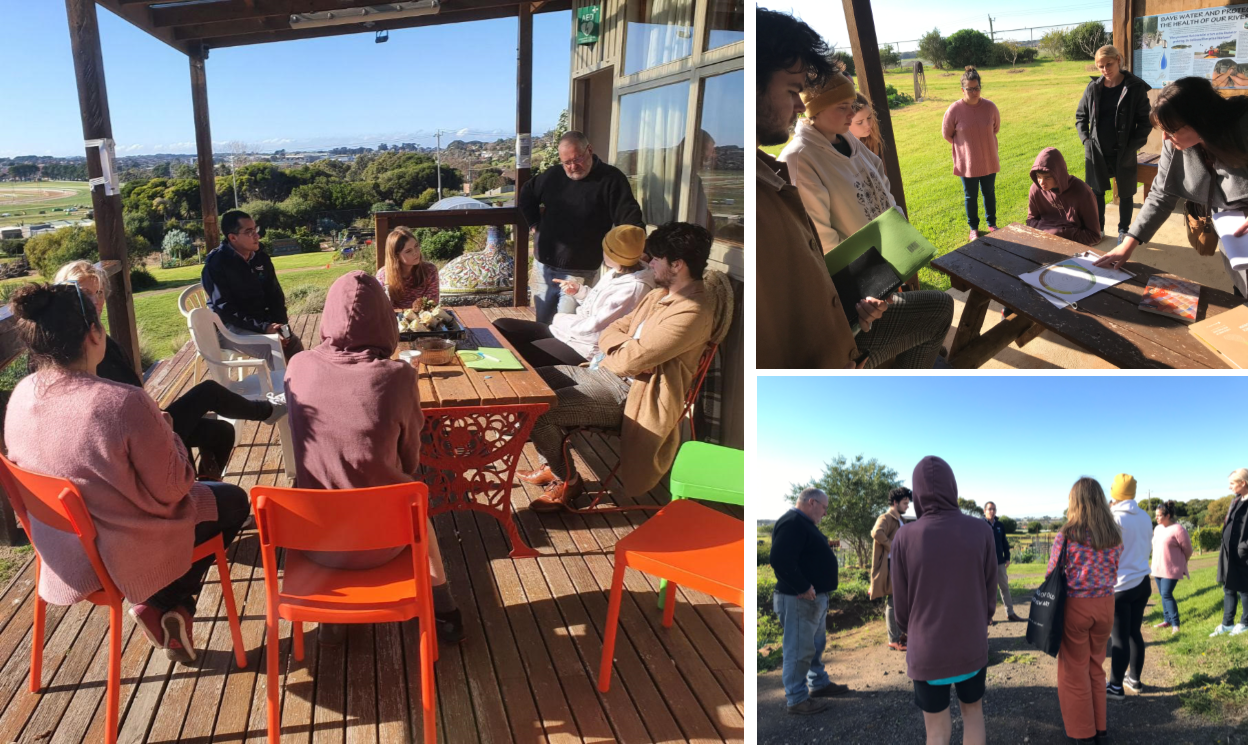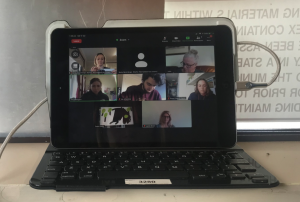Green Futures Now – working with our younger generation to tackle climate change
During the past month, I’ve been working alongside Becky Nevin Berger (Youth Development Planner) and Lauren Schneider (Coordinator of the Natural Environment team) at the Warrnambool City Council (WCC) to deliver an exciting youth climate change project. Funded through DELWP, Green Futures Now involves working with a group of passionate young people from Warrnambool who are concerned about the impacts of climate change.
The aim is to provide opportunities for the group to learn more about local actions occurring to mitigate and adapt to climate change, then support them in delivering their own project. A series of workshops have taken the group to various locations across town, where they have heard from community groups, businesses and individuals all taking positive environmental action.

Our first workshop showcased some great local examples of projects and initiatives supporting a movement towards zero net emissions and zero recoverable waste. First up, Claire Pritchard and Alison Farrar from DELWP spoke about the Regional Climate Adaption Strategy, and were particularly keen to hear from the young people about what matters most to them.
At the Warrnambool community garden, we heard about the local solar partnership project being used to reduce electricity costs and carbon emissions. The group also learnt about the cultural significance of the site and explored the vast range of garden beds, including bush food plants, herbs, vegetables and native plants. A visit to the chicken coop was also a highlight!

Local environmental architect, Fiona Golding, then spoke to the group about the uniquely designed shelter at the garden, which accommodates for the changing seasons. We heard about sustainable house day along with biomimicry – where design imitates nature (the classic example being velcro).
The group then travelled to Deakin University to hear about Hycel – a purpose built facility to trial hydrogen as a clean energy source. The day wrapped up with a talk from the Barwon South West Waste and Resource Recovery Group, where the group was excited to hear about local ways and opportunities to minimise waste. Finally, WCC Sustainability Officer Juan Donis provided the group with a rare opportunity to ride in a 100% clean energy electric car.

The second workshop was focused on all things green, blue and natural! Our first stop was to Kelly Swamp, where the group heard about the importance of coastal wetlands. We enjoyed some lunch while watching the birds and appreciating some quiet time at our local wetland. With replenished energy levels, we met with Warrnambool Coastcare Landcare Group at a revegetation site along the Merri River. The bulk of the planting had been completed by a group from Guntijmara as part of NAIDOC week. Before getting the last few plants in the ground, it was valuable to hear about the importance of revegetation, particularly from a cultural perspective, aligning with the NAIDOC 2021 theme – Heal Country.
The group was also interested to hear from Stephen Ryan at the Glenelg Hopkins Catchment Management Authority, about other habitat enhancement and weed management projects occurring along the Merri River. The day concluded with a talk from Wannon Water about integrated catchment management and their current and future strategies to mitigate and adapt to the effects of climate change (e.g. expansion of roof water harvesting, movement towards net carbon emissions).

The final workshop was held on the weekend and moved to an online delivery due to COVID-19 restrictions. The group was left feeling inspired and motivated after hearing from a range of local environmental champions. A vast range of environmental volunteering opportunities were showcased to the group from groups such as Making a Difference (MAD) for the Merri, Fishcare, Warrnambool Coastcare Landcare Group and NGT.
Collen Hughson, founder of Beach Patrol and Coordinator of the Better Buds Campaign, also shared her story of how finding plastic cotton buds and plastic resin pellets or ‘nurdles’ on a local beach in 2017, led her to fight for change. In the afternoon, we heard from a suite of local artists about the role art plays in connecting people with nature and climate change action.

After an intense three workshops, it was fitting to finish the final session with a self-care exercise led by ecologist and artist Jodie Honan. It highlighted the importance of taking care of ourselves while pursuing our vision for a greener and cleaner world.
Over the next two months, the Green Futures Now group will develop and deliver their own local environmental project. Previous discussions have highlighted the value and indeed necessity, of listening to our young people and giving them a platform to contribute to local climate change policy and action. Ultimately, honouring the perspectives of our younger generation ensures we remain inclusive and effective in our thinking towards climate change. I look forward to supporting the group in seeing their project ideas come to fruition in the weeks ahead.
